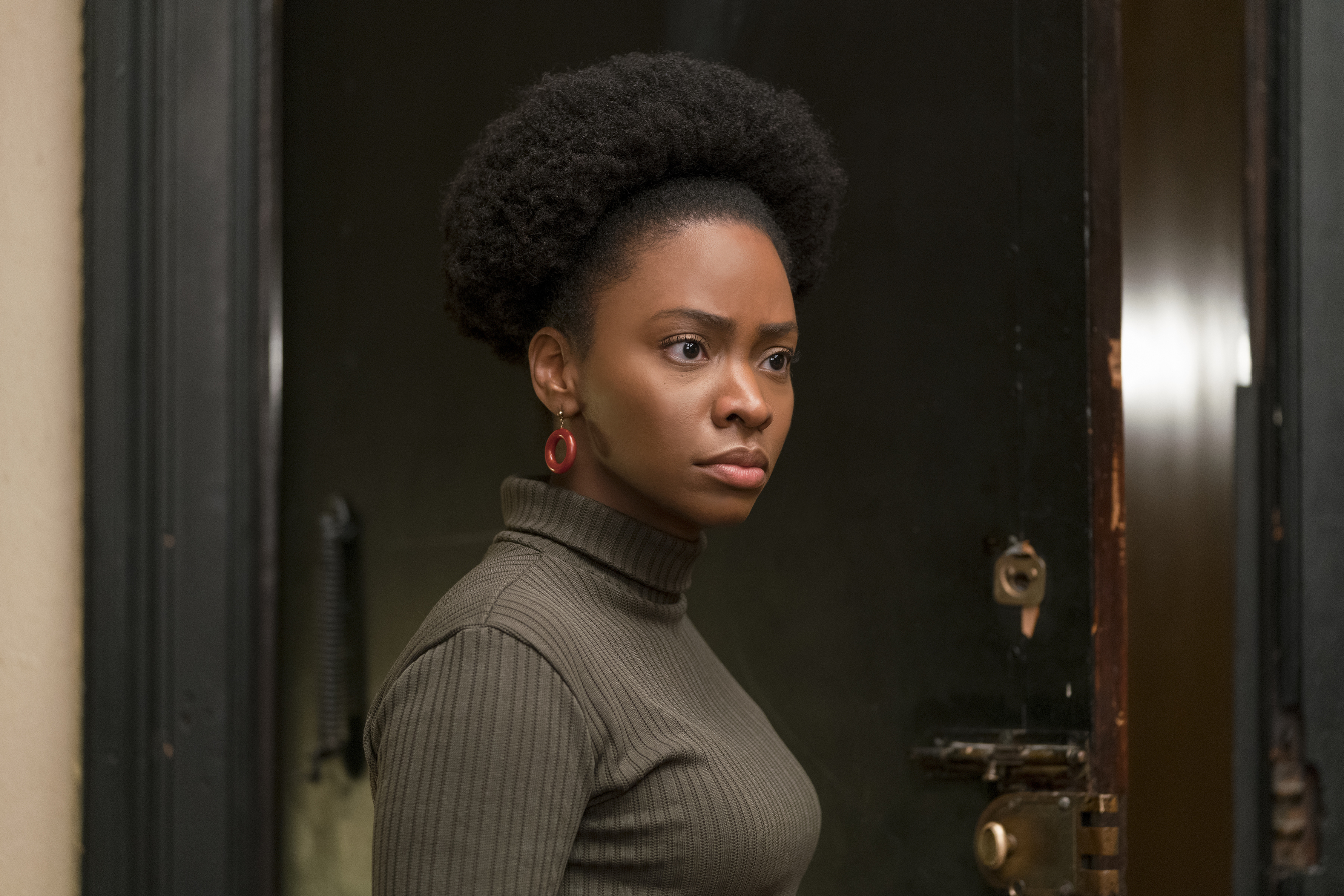
By LINDSEY BAHR
Associated Press
“Every black person born in America was born on Beale Street…whether in Jackson, Mississippi, or in Harlem, New York,” reads the title card that begins director Barry Jenkins’ “If Beale Street Could Talk .”
The quote is from a 1974 James Baldwin novel, which Jenkins has adapted himself for his first film since 2016’s “Moonlight.” The story is, loosely, about a pregnant woman, Tish (KiKi Layne, a phenomenal breakout) and her partner Fonny (Stephan James), who has been wrongly jailed for a crime he didn’t commit. Tish and Fonny are both achingly young and beautiful, full of promise and hope even amid all the institutional obstacles and injustices that they face in daily life in 1970s Harlem, like not being able to rent their own apartment, or buy groceries at the local mart without being reassessed by a police officer.
Their future, however, is dashed when Fonny is jailed because a woman across town has wrongly identified him as her rapist. Tish has to tell Fonny she’s pregnant through a glass window. Somehow, at least at first, the circumstances aren’t enough to break their spirits, although there is the sense that both are just putting on a brave face for the other.
Back at home, Tish’s family celebrates their daughter. Mom, Sharon (Regina King in a powerful performance), sister, Ernestine (Teyonah Parris) and dad, Joseph (Colman Domingo), open up the sherry, put on a record and call Fonny’s family over to continue spreading the news.
There are three wholly unforgettable scenes in “If Beale Street Could Talk,” and the electric showdown between Fonny’s religious and snobbish mother (Aunjanue Ellis) and Tish’s family is one of them. Another is a stirringly haunting monologue from Brian Tyree Henry, which unfortunately is really his only significant scene in the film, and the third is Sharon’s heartbreaking talk with Fonny’s accuser. All are well-worth the price of admission
Not everything works totally, in between these barnburners there is a lot of sleepy down time (still gorgeously shot and scored) and a few moments that just don’t quite work the way they probably should, like Dave Franco as an empathetic Jewish landlord who just loves love.
The film plays more like a free verse poem than a traditional narrative, jumping back and forth between moments chronicling the origins of Tish and Fonny’s relationship, and Tish’s struggle to prove Fonny’s innocence in the present.
Jenkins and cinematographer James Laxton (“Moonlight”) use close ups, and straight on shots of his actors looking right into the camera as though they are speaking to the audience and daring them to notice. It’s startlingly impactful and bold, like the perfectly bright clothes costumer Caroline Eselin has chosen to help flesh out this world and its characters. Does anyone use colors as perfectly as Jenkins does? Whether it’s a red leather booth or a yellow coat, everything in his frame is there for a reason, and every shot is like its own beautiful painting come to life.
The whole production makes the film a transporting experience, heady and intoxicating, but perhaps the most important ingredient in bringing it all together is Nicholas Britell’s elegantly subtle and heartrending score. “Moonlight” is a hard act to follow, and while “Beale Street” might not quite reach the heights of Jenkins’ instant classic of a best picture-winner, it is its own kind of marvel, lovely, transcendent, heartbreaking and as smooth as its jazzy soundtrack.
“If Beale Street Could Talk,” an Annapurna Pictures release, is rated R by the Motion Picture Association of America for “language and some sexual content.” Running time: 119 minutes. Three and a half stars out of four.



















